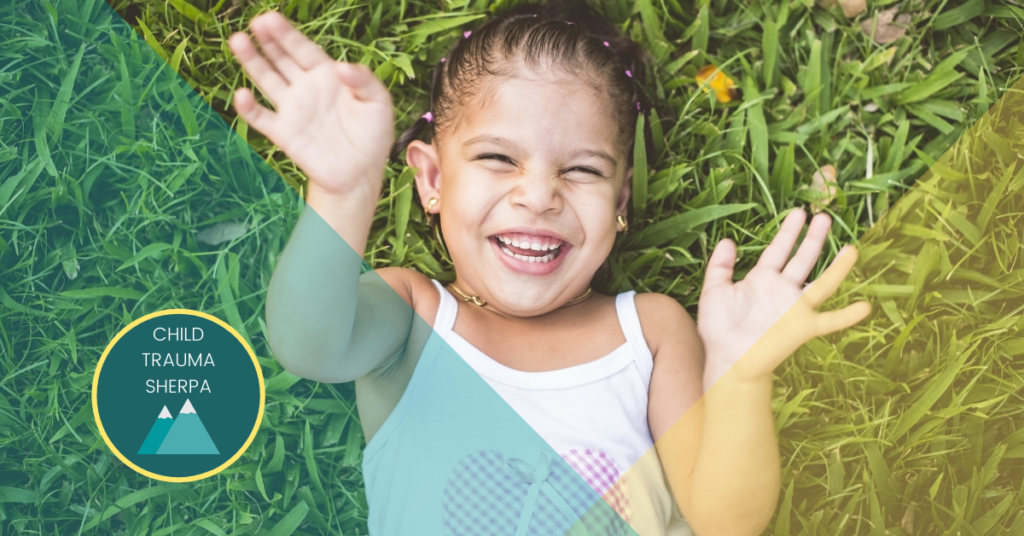There is No “One Size Fits All” for Disciplining a Child
Childhood trauma can leave a trail of destruction. Repeated exposure to it causes an actual brain injury that can change how a child behaves and reacts. Fortunately, the brain continues to grow and change up through the age of 25, so there is time to help your adopted child heal. Part of that healing process is helping your children learn and grow. But one of the biggest questions I hear is “How do I discipline my child that has experienced childhood trauma?”
Disciplining a child that has experienced childhood trauma of any type can be tricky. Your goal is to help guide and gently correct your children’s bad behaviors without retraumatizing them. Unfortunately, many of the usual discipline practices may only lead to them acting out more and worse yet, can retraumatize them.
It is important to note that there is no one correct way to discipline any child and that is certainly true for children with trauma as well. What works with one child won’t work with another and that is because we are all unique human beings with our own unique experiences and thoughts! So rather than taking these as strict rules on how to discipline a child that has experienced childhood emotional trauma, take these tips more as a starting point or as guidelines that have been beneficial in my family’s journey with raising adopted children with trauma.

1 | Offer Support and Unconditional Love
The most important thing you can do is to always show love and support to your child, no matter their behavior. This unconditional love is a key part in helping them learn to trust adults and eventually heal. Understand that your child’s bad behaviors stem from their trauma and resulting dysregulation. And often, your child may not understand why their behavior has happened, which is all the more reason why you need to support them. Some ways to offer support include using phrases such as:
- “I love you.”
- “We’ll get through this together.”
- “I won’t give up on you.”
- “I want you here.”
2 | Validate their Emotions
Understand that all emotions are valid. While there is a difference between valid and justified, when your child is experiencing an emotion is not the time to have a discussion as to whether or not the emotion is justified. Telling a child to not “get upset” will only make the situation worse. Instead, begin by validating their emotions by using phrases such as:
- “I can see you’re…”
- “It’s okay to be…”
- “Feeling [emotion] can be hard.”
- “Help me understand why you are feeling…”
3 | Consequences for Bad Behavior
Know that your child is not bad, it’s the behavior that is bad. Children who have childhood trauma are often viewed as their behaviors by others so don’t fall into this thinking trap! Rather than telling the child they are bad, tell them that their behavior is bad. This way, the focus becomes the behavior and not your child as a person.
Remember to never react emotionally to the bad behavior. It is key that we offer stable, non-emotional responses to bad behaviors to help them heal over time. When it comes to consequences for bad behaviors, use natural consequences, which are consequences that directly relate to the bad behavior. For example if your child throws a toy, they lose the toy for the rest of the day. One good tip is to work with everyone in your support group to create a list of natural consequences ahead of time, this way you are not deciding on the consequence based on your emotional state and you are better able to offer non-emotional responses to bad behavior.
It’s also key that you try to fully understand the trauma your adopted child experienced so as to avoid any discipline that can retraumatize them.
4 | Some Final Tips
Parenting a child with trauma may mean throwing out many societal notions and norms about parenting children. You must be willing to come with an open mind and, in essence, re-learn how to parent. Understand that this is new for you too and that you will make mistakes and that is okay; we are all human. That also means that things may get emotional from time to time in the beginning. So have a plan in place that ensures the safety and well-being of everyone. Have a designated “safe zone” for your child to go to. This isn’t a place for discipline, but rather a place for them to calm down. Utilize the other adult to diffuse situations or de-escalate them.
Also understand that you shouldn’t take your adopted child’s bad behavior personally, even when they test your limits or push back against you. Their behavior is the result of trauma they experienced and their resulting brain injury from that trauma. And finally, remember to take time for self-care. This will help you battle empathy fatigue. You’ll need empathy in spades to help your child heal because it is what allows you to provide that unconditional love and support they need to learn to trust.

